第15章
With the ant-heap the respectable race of ants began and with the ant-heap they will probably end, which does the greatest credit to their perseverance and good sense. But man is a frivolous and incongruous creature, and perhaps, like a chess player, loves the process of the game, not the end of it. And who knows (there is no saying with certainty), perhaps the only goal on earth to which mankind is striving lies in this incessant process of attaining, in other words, in life itself, and not in the thing to be attained, which must always be expressed as a formula, as positive as twice two makes four, and such positiveness is not life, gentlemen, but is the beginning of death. Anyway, man has always been afraid of this mathematical certainty, and I am afraid of it now. Granted that man does nothing but seek that mathematical certainty, he traverses oceans, sacrifices his life in the quest, but to succeed, really to find it, dreads, I assure you. He feels that when he has found it there will be nothing for him to look for. When workmen have finished their work they do at least receive their pay, they go to the tavern, then they are taken to the police-station--and there is occupation for a week. But where can man go? Anyway, one can observe a certain awkwardness about him when he has attained such objects. He loves the process of attaining, but does not quite like to have attained, and that, of course, is very absurd. In fact, man is a comical creature; there seems to be a kind of jest in it all.
But yet mathematical certainty is after all, something insufferable. Twice two makes four seems to me simply a piece of insolence. Twice two makes four is a pert coxcomb who stands with arms akimbo barring your path and spitting. I admit that twice two makes four is an excellent thing, but if we are to give everything its due, twice two makes five is sometimes a very charming thing too.
And why are you so firmly, so triumphantly, convinced that only the normal and the positive--in other words, only what is conducive to welfare--is for the advantage of man? Is not reason in error as regards advantage? Does not man, perhaps, love something besides well-being? Perhaps he is just as fond of suffering? Perhaps suffering is just as great a benefit to him as well-being? Man is sometimes extraordinarily, passionately, in love with suffering, and that is a fact. There is no need to appeal to universal history to prove that; only ask yourself, if you are a man and have lived at all. As far as my personal opinion is concerned, to care only for well-being seems to me positively ill-bred. Whether it's good or bad, it is sometimes very pleasant, too, to smash things. I hold no brief for suffering nor for well-being either. I am standing for ... my caprice, and for its being guaranteed to me when necessary.
Suffering would be out of place in vaudevilles, for instance; Iknow that. In the "Palace of Crystal" it is unthinkable;suffering means doubt, negation, and what would be the good of a "palace of crystal" if there could be any doubt about it? And yet I think man will never renounce real suffering, that is, destruction and chaos. Why, suffering is the sole origin of consciousness. Though I did lay it down at the beginning that consciousness is the greatest misfortune for man, yet I know man prizes it and would not give it up for any satisfaction.
Consciousness, for instance, is infinitely superior to twice two makes four. Once you have mathematical certainty there is nothing left to do or to understand. There will be nothing left but to bottle up your five senses and plunge into contemplation.
While if you stick to consciousness, even though the same result is attained, you can at least flog yourself at times, and that will, at any rate, liven you up. Reactionary as it is, corporal punishment is better than nothing.